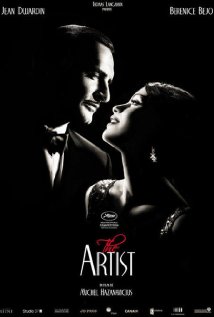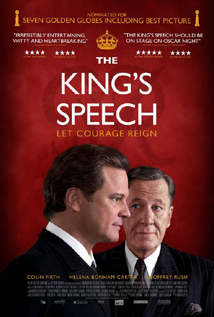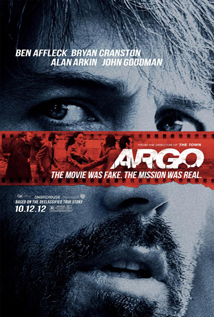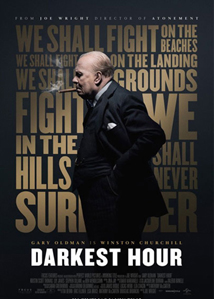An Academy Award, commonly referred to as an 'Oscar', is an award bestowed by the American Academy of Motion Picture Arts and Sciences (AMPAS) to recognize excellence of professionals in the film industry, including directors, actors and writers. The Oscar statuette is officially named the Academy Award of Merit and is one of nine types of Academy Awards.
The formal ceremony at which the Awards of Merit are presented is one of the most prominent award ceremonies in the world, and is televised live in more than 100 countries annually. It is also the oldest award ceremony in the media; its equivalents, the Grammy Awards (for music), Emmy Awards (for television), and Tony Awards (for theatre) are modeled after the Academy.
The AMPAS was originally conceived by Metro-Goldwyn-Mayer studio boss Louis B. Mayer as a professional honorary organisation to help improve the film industry’s image and help mediate labour disputes. The Oscar itself was later initiated by the Academy as an award "of merit for distinctive achievement" in the industry.
The first Academy Awards ceremony was held on 16 May 1929, at the Hotel Roosevelt in Hollywood to honour the outstanding film achievements of the 1927/1928 film season. The 84th Academy Awards, honouring films in 2011, was held at the Hollywood and Highland Center on 26 February 2012.
History
The first awards were presented in 1929 at a private brunch at the Hollywood
Roosevelt Hotel with an audience of about 270 people. The post Academy
Awards party was held at the Mayfair Hotel. The cost of guest tickets
for that night's ceremony was $5. Fifteen statuettes were awarded, honouring
artists, directors and other personalities of the filmmaking industry
of the time for their works during the 1927–1928 period.
Winners had been announced three months earlier; however that was changed in the second ceremony of the Academy Awards in 1930. Since then and during the first decade, the results were given to newspapers for publication at 11 pm on the night of the awards. This method was used until the Los Angeles Times announced the winners before the ceremony began; as a result, the Academy has used a sealed envelope to reveal the name of the winners since 1941. The period of eligibility is the full previous calendar year from January 1 to December 31.
The first Best Actor awarded was Emil Jannings, for his performances in The Last Command and The Way of All Flesh. He had to return to Europe before the ceremony, so the Academy agreed to give him the prize earlier; this made him the first Academy Award winner in history. The honoured professionals were awarded for all the work done in a certain category for the qualifying period; for example, Jannings received the award for two movies in which he starred during that period. Since the fourth ceremony, the system changed, and professionals were honoured for a specific performance in a single film. As of the 83rd Academy Awards ceremony held in 2011, a total of 2,809 Oscars have been given for 1,853 awards. A total of 302 actors have won Oscars in competitive acting categories or have been awarded Honorary or Juvenile Awards.
The 1939 film Beau Geste is the only movie that features as many as four Academy Award winners for Best Actor in a Leading Role (Gary Cooper, Ray Milland, Susan Hayward, Broderick Crawford) prior to any of the actors receiving the Best Actor Award. At the 29th ceremony, held on March 27, 1957, the Best Foreign Language Film category was introduced. Until then, foreign-language films were honored with the Special Achievement Award.
The
Oscar Statuette
Although there are seven other types of annual awards presented by the
Academy, the best known one is the Academy Award of Merit, more popularly
known as the Oscar statuette. Made of gold-plated britannium on a black
metal base, it is 13.5 in (34 cm) tall, weighs 8.5 lb (3.85 kg) and
depicts a knight rendered in Art Deco style holding a crusader's sword
standing on a reel of film with five spokes. The five spokes each represent
the original branches of the Academy: Actors, Writers, Directors, Producers,
and Technicians.
The root of the name Oscar is contested. One biography of Bette Davis
claims that she named the Oscar after her first husband, band leader
Harmon Oscar Nelson. Walt Disney is also quoted as thanking the Academy
for his Oscar as early as 1932. Another claimed origin is that the Academy's
Executive Secretary, Margaret Herrick, first saw the award in 1931 and
made reference to the statuette's reminding her of her "Uncle Oscar".
Columnist Sidney Skolsky was present during Herrick's naming and seized
the name in his byline, "Employees have affectionately dubbed their
famous statuette 'Oscar'". Another report is that the Norwegian-American
Eleanor Lilleberg, executive secretary to Louis B. Mayer, saw the first
statuette and exclaimed, "It looks like King Oscar II!". At
the end of the day she asked, "What should we do with Oscar, put
him in the vault?" and the name stuck. The trophy was officially
dubbed the 'Oscar' in 1939 by the Academy of Motion Pictures Arts and
Sciences.
Since 1950, the statuettes have been legally encumbered by the requirement
that neither winners nor their heirs may sell the statuettes without
first offering to sell them back to the Academy for US$1. If a winner
refuses to agree to this stipulation, then the Academy keeps the statuette.
Academy Awards not protected by this agreement have been sold in public
auctions and private deals for six-figure sums. In December 2011, Orson
Welles' 1941 Oscar for Citizen Kane was put up for auction, after his
heirs won a 2004 court decision that Welles did not sign any agreement
to return the statue to the Academy. Although other Oscar sales transactions
have been successful, some buyers have subsequently returned the statuettes
to the Academy, which keeps them in its treasury.
Nomination
The Academy of Motion Picture Arts and Sciences (AMPAS), a professional
honorary organization, maintains a voting membership of 5,783 as of
2012. Academy membership is divided into different branches, with each
representing a different discipline in film production. Actors constitute
the largest voting bloc, numbering 1,311 members (22 percent) of the
Academy's composition. Since 2004, Academy Award nomination results
have been announced to the public in late January. Prior to that, the
results were announced in early February.
Eligibility for Awards
A film must open in the previous calendar year, from midnight at the start of 1st January to midnight at the end of 31st December, in Los Angeles County, California, to qualify (except for the Best Foreign Language Film). For example, the 2010 Best Picture winner, The Hurt Locker, was actually first released in 2008, but did not qualify for the 2009 awards as it did not play its Oscar-qualifying run in Los Angeles until mid-2009, thus qualifying for the 2010 awards.
A
film must be feature-length, defined as a minimum of 40 minutes, except
for short subject awards, and it must exist either on a 35 mm or 70
mm film print or in 24 frame/sec or 48 frame/sec progressive scan digital
cinema format with native resolution not less than 1280x720.
Producers must submit an Official Screen Credits online form before
the deadline. In case it is not submitted by the defined deadline, the
film will be ineligible for Academy Awards in any year. The form includes
the production credits for all related categories. Each form is checked
and put in a Reminder List of Eligible Releases.
In late December, ballots and copies of the Reminder List of Eligible
Releases are mailed to around 6,000 active members. For most categories,
members from each of the branches vote to determine the nominees only
in their respective categories (i.e. only directors vote for directors,
writers for writers, actors for actors, etc.). There are some exceptions
in the case of certain categories, like Foreign Film, Documentary and
Animated Feature Film, in which movies are selected by special screening
committees made up of members from all branches. In the special case
of Best Picture, all voting members are eligible to select the nominees
for that category. Foreign films must include English subtitles, and
each country can submit only one film per year.
The Awards Ceremony
The major awards are presented at a live televised ceremony, most commonly in February or March following the relevant calendar year, and six weeks after the announcement of the nominees. It is the culmination of the film awards season, which usually begins during November or December of the previous year. This is an elaborate extravaganza, with the invited guests walking up the red carpet in the creations of the most prominent fashion designers of the day. Black tie dress is the most common outfit for men, although fashion may dictate not wearing a bow-tie, and musical performers sometimes do not adhere to this. The artists who recorded the nominees for Best Original Song quite often perform those songs live at the awards ceremony, and the fact that they are performing is often used to promote the television broadcast.
The Academy Awards ceremony is televised live across the United States (excluding Hawaii; they aired live for the first time in Alaska in 2011), Canada and the United Kingdom, and gathers millions of viewers elsewhere throughout the world. The 2007 ceremony was watched by more than 40 million Americans.
After more than sixty years of being held in late March or early April,
the ceremonies were moved up to late February or early March starting
in 2004 to help disrupt and shorten the intense lobbying and ad campaigns
associated with Oscar season in the film industry. Another reason was
because of the growing TV ratings success of the NCAA Men's Division
I Basketball Championship, which would cut into the Academy Awards audience.
On March 30, 1981, the awards ceremony was postponed for one day after
the shooting of President Ronald Reagan and others in Washington, D.C.
In 2010, the organisers of the Academy Awards announced that winners'
acceptance speeches must not run past 45 seconds. This, according to
organser Bill Mechanic, was to ensure the elimination of what he termed
"the single most hated thing on the show" – overly long
and embarrassing displays of emotion.
Awards
Ceremony Venues
In 1929, the first Academy Awards were presented at a banquet dinner at the Hollywood Roosevelt Hotel. From 1930–1943, the ceremony alternated between two venues: the Ambassador Hotel on Wilshire Boulevard and the Biltmore Hotel in downtown Los Angeles.
Grauman's Chinese Theater in Hollywood then hosted the awards from 1944 to 1946, followed by the Shrine Auditorium in Los Angeles from 1947 to 1948. The 21st Academy Awards in 1949 were held at the Academy Award Theater at what was the Academy's headquarters on Melrose Avenue in Hollywood. From 1950 to 1960, the awards were presented at Hollywood's Pantages Theatre.
With the advent of television, the 1953–1957 awards took place simultaneously in Hollywood and New York, first at the NBC International Theatre (1953) and then at the NBC Century Theatre (1954–1957), after which the ceremony took place solely in Los Angeles. The Oscars moved to the Santa Monica Civic Auditorium in Santa Monica, California in 1961.
By 1969, the Academy decided to move the ceremonies back to Los Angeles, this time to the Dorothy Chandler Pavilion at the Los Angeles County Music Center. In 2002, the Kodak Theatre became the permanent home of the award ceremonies. However, due to Eastman Kodak's bankruptcy issues, this theatre was renamed the Hollywood and Highland Center in the days preceding the February 2012 awards ceremony.
Academy Awards of Merit
Current awards:
•
Best Actor in a Leading Role: since 1928
• Best Actor in a Supporting Role: since 1936
• Best Actress in a Leading Role: since 1928
• Best Actress in a Supporting Role: since 1936
• Best Animated Feature: since 2001
• Best Animated Short Film: since 1931
• Best Art Direction: since 1928
• Best Cinematography: since 1928
• Best Costume Design: since 1948
• Best Director: since 1928
• Best Documentary Feature: since 1943
• Best Documentary Short: since 1941
• Best Film Editing: since 1935
• Best Foreign Language Film: since 1947
• Best Live Action Short Film: since 1931
• Best Makeup: since 1981
• Best Original Score: since 1934
• Best Original Song: since 1934
• Best Picture: since 1928
• Best Sound Editing: since 1963
• Best Sound Mixing: since 1930
• Best Visual Effects: since 1939
• Best Adapted Screenplay: since 1928
• Best Original Screenplay: since 1940
In the first year of the awards, the Best Director award was split into two separate categories (Drama and Comedy). At times, the Best Original Score award has also been split into separate categories (Drama and Comedy/Musical). From the 1930s through to the 1960s, the Art Direction, Cinematography, and Costume Design awards were likewise split into two separate categories (black-and-white films and color films).
Another award, entitled the Academy Award for Best Original Musical, is still in the Academy rulebooks and has yet to be retired. However, due to continuous insufficient eligibility each year, it has not been awarded since 1984, when Purple Rain won.
Retired awards:
• Best Assistant Director: 1933 to 1937
• Best Dance Direction: 1935 to 1937
• Best Engineering Effects: 1928 only
• Best Original Musical or Comedy Score: 1995 to 1999
• Best Original Story: 1928 to 1956
• Best Score – Adaptation or Treatment: 1962 to 1969; 1973
• Best Short Film – Color: 1936 and 1937
• Best Short Film – Live Action – 2 Reels: 1936 to
1956
• Best Short Film – Novelty: 1932 to 1935
• Best Title Writing: 1928 only
• Best Unique and Artistic Quality of Production: 1928 only
Proposed awards:
The Board of Governors meets each year and considers new awards. To date, the following proposed awards have not been approved:
• Best Casting: rejected in 1999
• Best Stunt Coordination: rejected in 1999; rejected in 2005;
rejected in 2011
• Best Title Design: rejected in 1999
Special Academy Awards:
These awards are voted on by special committees, rather than by the Academy membership as a whole. They are not always presented on a consistent annual basis.
Current special awards:
• Academy Honorary Award: since 1929
• Academy Scientific and Technical Award: since 1931
• Gordon E. Sawyer Award: since 1981
• Jean Hersholt Humanitarian Award: since 1956
• Irving G. Thalberg Memorial Award: since 1938
Retired special awards:
• Academy Juvenile Award: 1934 to 1960
• Academy Special Achievement Award: 1972 to 1995
Criticism
Due to the positive exposure and prestige of the Academy Awards, studios spend millions of dollars and hire publicists specifically to promote their films during what is typically called the "Oscar season". This has generated accusations of the Academy Awards being influenced more by marketing than quality. William Friedkin, an Academy Award-winning film director and former producer of the ceremony, expressed this sentiment at a conference in New York in 2009, describing it as "the greatest promotion scheme that any industry ever devised for itself".
In addition, some winners critical of the Academy Awards have boycotted the ceremonies and refused to accept their Oscars. The first to do so was Dudley Nichols (Best Writing in 1935 for The Informer). Nichols boycotted the 8th Academy Awards ceremony because of conflicts between the Academy and the Writers' Guild. George C. Scott became the second person to refuse his award (Best Actor in 1970 for Patton) at the 43rd Academy Awards ceremony. Scott described it as a 'meat parade', saying 'I don't want any part of it." The third winner, Marlon Brando, refused his award (Best Actor in 1972 for The Godfather), citing the film industry's discrimination and mistreatment of Native Americans. At the 45th Academy Awards ceremony, Brando sent Sacheen Littlefeather to read a 15-page speech detailing his criticisms.
Unfortunately, the critical worth, artistic vision, cultural influence, and innovative qualities of many films are not given the same voting weight. Especially since the 1980s, moneymaking "formula-made" blockbusters with glossy production values have often been crowd-pleasing titans (and Best Picture winners), but they have not necessarily been great films with depth or critical acclaim. Acting prizes in certain years have been criticised for not recognizing superior performances so much as being awarded for sentimental reasons, personal popularity, atonement for past mistakes, or presented as a "career honour" to recognize a distinguished nominee's entire body of work.
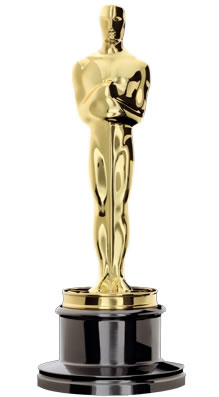
Some of the Oscar-winning films we have shown at Biggar Little Cinema
